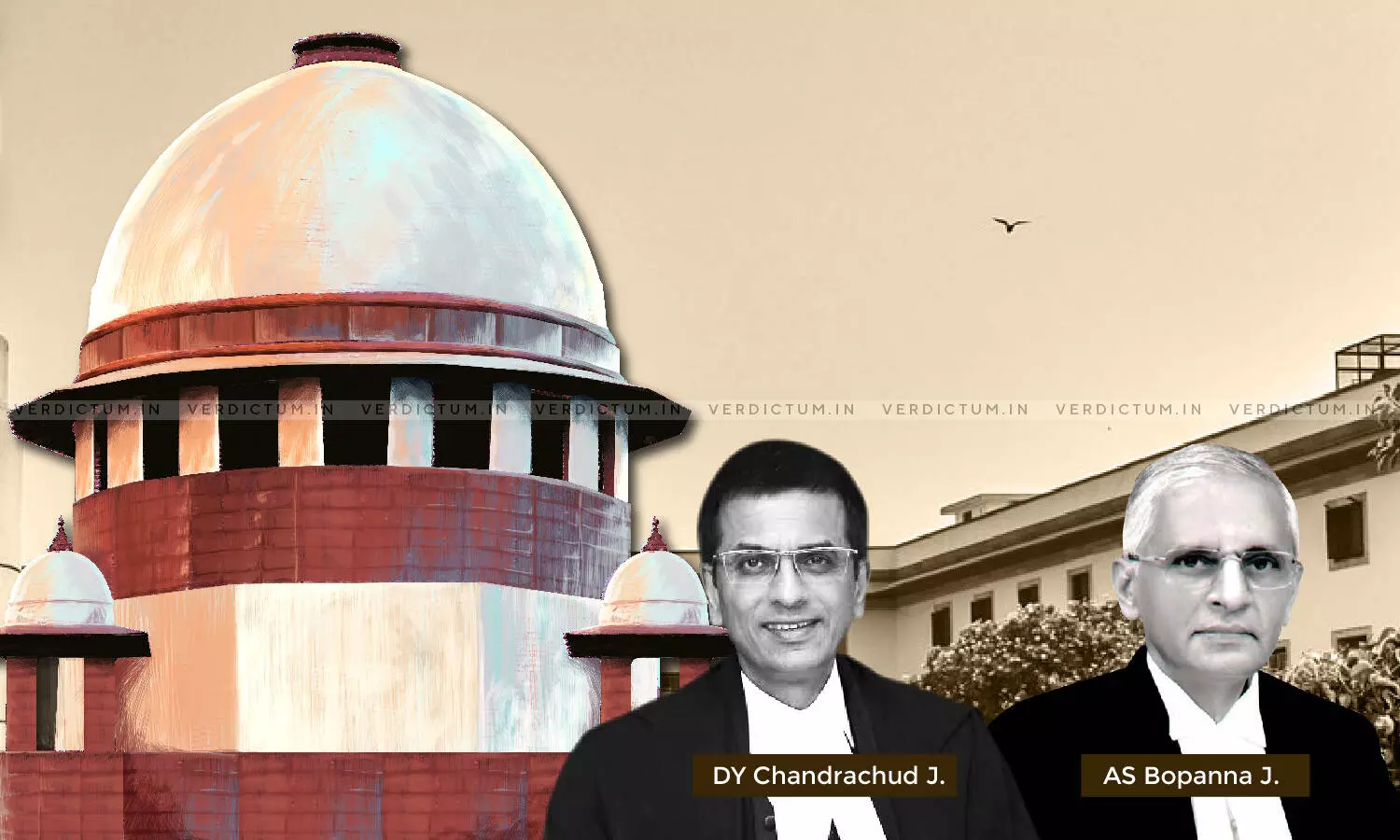
Arbitrator Has Discretion U/s. 31(7)(b) Of Arbitration Act To Award Post-Award Interest On Part Of Sum – Supreme Court
 |
|The Supreme Court has observed that an arbitrator has the discretion under Section 31(7)(b) of the Arbitration and Conciliation Act 1996 to award post-award interest on part of the sum.
The Bench of Justice DY Chandrachud and Justice AS Bopanna held –
"Section 31(7)(b) does not fetter or restrict the discretion that the arbitrator holds in granting post-award interest. The arbitrator has the discretion to award post-award interest on a part of the sum."
The Court also held that the arbitrator must exercise discretion to grant post-award interest reasonably and in good faith, taking into account all relevant circumstances.
The Bench further observed, "According to Section 31(7)(b), if the arbitrator does not grant postaward interest, the award holder is entitled to post-award interest at eighteen percent."
In this case, the Appellant had assailed the impugned judgment of the Delhi High Court which had dismissed the appeal under Section 31 of the Arbitration Act.
The issue which was dealt with by the Court was –
- Whether the Arbitrator has the discretion to grant post-award interest only on the principal sum due under Section 31(7)(b) of the Act.
Counsel Abhishek Puri appeared for the Appellants while Senior Counsel Nakul Dewan appeared for the Respondents before the Apex Court.
The Court referred to Section 31 of the Act which provides for the "form and content of arbitral award". The Court also referred to subsection 7 of Section 31 that deals with pre-award and post-award interest. Section 31(7)(a) provides for pre-award interest, that is for the period between the date on which the cause of action arose and the date on which the award is made. Section 31(7)(b) provides for post-award interest, between the date of award to the date of payment.
While placing reliance on Hyder Consulting (UK) Limited v. Governor, State of Orissa, the Court noted the observations made by Justice Bobde and Justice Sapre in the judgment.
The Court further noted that Justice Bobde had interpreted the expressions "sum" and "unless the award other directs" as mentioned under Section 31(7)(b) of the Act.
"The phrase 'sum' has been interpreted in the opinion of Justice Bobde and in the concurring opinion of Justice Sapre in Hyder Consulting (supra) to mean the amount directed to be paid by an arbitral award as arrived in Section 31(7)(a), which would include the aggregate of the principal and the pre-award interest," the Court continued to note.
Furthermore, the Bench also observed, "On the interpretation of the words 'unless the award otherwise directs', Justice Sapre interpreted them to mean that post-award interest is a statutory mandate and that the arbitrator only has the discretion to determine the rate of interest to be awarded. Justice Bobde did not specifically interpret the phrase 'unless the award otherwise directs'."
The Court also held that in the opinion of Justice Bobde it could be interpreted to mean that either the arbitrator has the discretion to decide not to grant post-award interest or as recognizing the discretion of the arbitrator on whether to grant interest on the aggregate of the principal and the pre-award interest.
In this context, the Court further held, "As noted above, the opinion authored by Justice Bobde was limited to this aspect of post-award interest. It was in the concurring opinion of Justice Sapre that it was held that the arbitrator only has the discretion to determine the rate of post-award interest."
The Court thus held that section 31(7)(a) confers a wide discretion upon the arbitrator in regard to the grant of pre-award interest. The arbitrator has the discretion to determine the rate of reasonable interest, the sum on which the interest is to be paid, that is whether on the whole or any part of the principal amount, and the period for which payment of interest is to be made - whether it should be for the whole or any part of the period between the date on which the cause of action arose and the date of the award.
To this end, the Bench observed, "When a discretion has been conferred on the arbitrator in regard to the grant of pre-award interest, it would be against the grain of statutory interpretation to presuppose that the legislative intent was to reduce the discretionary power of the arbitrator for the grant of post-award interest under clause (b). Clause (b) only contemplates a situation where the arbitration award is silent on post-award interest, in which event the award-holder is entitled to a post-award interest of eighteen percent."
The Court held that the arbitrator has the discretion to grant post-award interest. Clause (b) does not fetter the discretion of the arbitrator to grant post-award interest. It only contemplates a situation in which discretion is not exercised by the arbitrator.
The Bench further also held that the arbitrator must exercise discretion in good faith and must take into account all the relevant and not irrelevant considerations and must act reasonably.
Thus, the Court concluded –
- According to Section 31(7)(b), if the arbitrator does not grant postaward interest, the award holder is entitled to post-award interest at eighteen percent;
- Section 31(7)(b) does not fetter or restrict the discretion that the arbitrator holds in granting post-award interest. The arbitrator has the discretion to award post-award interest on a part of the sum;
- The arbitrator must exercise the discretionary power to grant postaward interest reasonably and in good faith, taking into account all relevant circumstances.
In light of these observations, the Court dismissed the appeal.
Cause Title - Morgan Securities And Credits Pvt. Ltd. v. Morgan Securities And Credits Pvt. Ltd.
Click here to read/download the Judgment